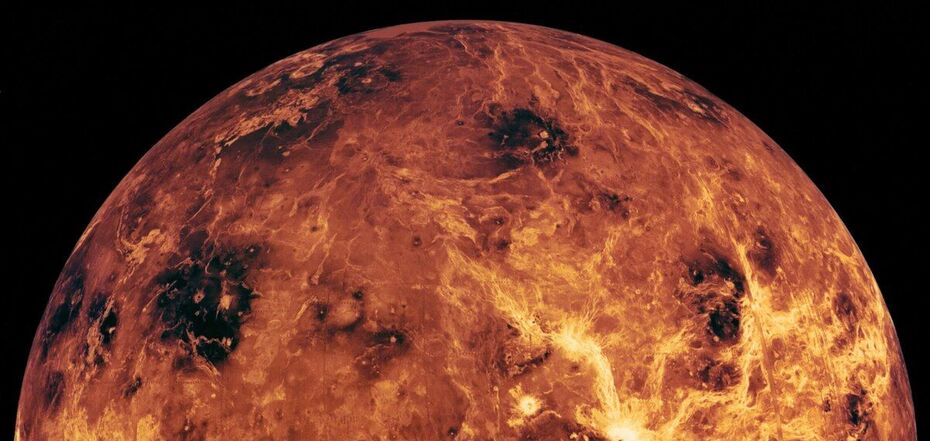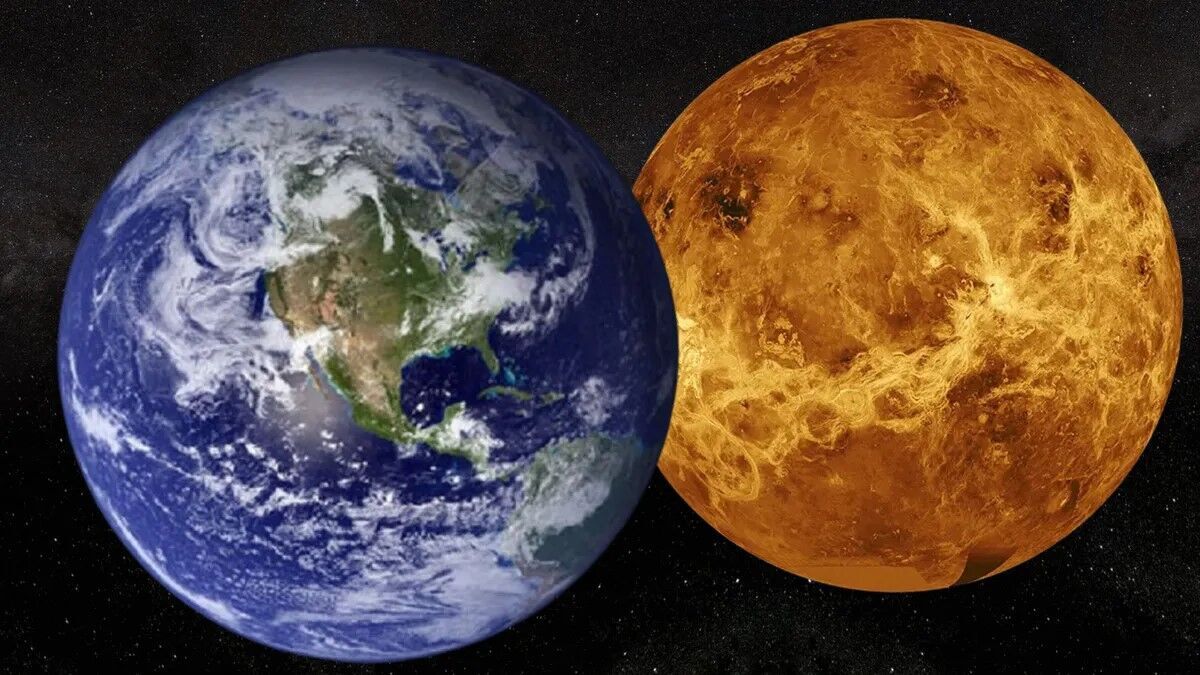News
Venus is not and has never been habitable: scientists have destroyed the myth of the "evil twin of the Earth"
Given its similar mass and distance from the Sun to Earth, Venus is often referred to as our planet's "evil twin." And while scientists have previously assumed that it was not once so scorching hot, a new study shows that these hopes were in vain.
A group of scientists from the University of Cambridge have studied the chemical composition of Venus' atmosphere. Scientists have concluded that water oceans could never exist on the surface of our neighboring planet, Space.com reports.
According to scientists, the surface temperature of Venus is currently around 500 degrees Celsius, hot enough to melt lead. Also, the second planet from the Sun has sulfuric acid clouds.
There are two main concepts for how Venus might have evolved over the past 4.6 billion years.
The first suggests that the planet was once cool enough to have liquid water on it. According to this theory, this situation changed due to the greenhouse effect caused by volcanic activity. Venus gradually became hotter, reaching a point where it could no longer contain water in a liquid state, the researchers say.
Another theory suggests that Venus never had liquid water because the planet was "born hot." The new research results favor the anhydrous history.
"Both of these theories are based on climate models, but we wanted to take a different approach based on observations of the current chemistry of Venus' atmosphere. To keep Venus's atmosphere stable, any chemicals removed from the atmosphere must also be returned to it, as the inner and outer planets are in constant chemical communication with each other," said team leader Teresa Constantinou, a PhD student at the Cambridge Institute of Astronomy.
The researchers found out how quickly water, carbon dioxide, and carbonyl sulfide are destroyed in the atmosphere of Venus and how quickly they must be replenished from the interior of the planet through volcanism.
It is known that volcanic eruptions on Earth are mostly steamy due to the fact that our world is rich in water. The team of scientists found that Venus's volcanic gases consist of no more than 6% steam.
From these dry eruptions, the researchers concluded that the interior of Venus is too dry for the planet to ever have enough water to support oceans on its surface.
"We won't know for sure whether Venus can support life until we send probes later this decade. But given that Venus has probably never had oceans, it's hard to imagine it ever supporting life like Earth, which requires liquid water," Konstantinou emphasized.
The NASA DAVINCI mission will begin in June 2029, and in two years it will reach Venus. Once near the hellish planet, DAVINCI will drop the probe through its atmosphere, collecting important data.
"We would like to discover that Venus was once a planet much closer to ours because it is sad to learn that it is not. But we should focus our search on planets that are more likely to support life – at least life as we know it," summarized researcher Teresa Constantinou.
Only verified information is available on the OBOZ.UA Telegram channel and Viber. Do not fall for fakes!




























